
ISSN:


ISSN:
Prajna Ganesh Gunaga1 , Geena George2
1PG Student, 2Associate Professor Department of Civil Engineering, EPCET, Visvesvaraya Technological University, Bengaluru, Karnataka, India

Abstract: Many construction projects experience schedule and expense overruns which results in poor planning, scheduling, and execution, which causes number of problems such as delays in the provision of facilities, development, a decline in construction quality, and an increase in project cost. A little thought reveals that the amount of time needed to accomplish the job is inversely related to the availability of labor. When the number of workers is raised, the project's completion time is shortened; conversely, when the number of workers is reduced, the project's completion time is lengthened. The present study deals with the manpower, planning, scheduling and resource optimization of “Construction of a Villa Project at Chaitanya Sharan, Bengaluru”, a two storied (G+2) building of 26 units whose construction is complete at Gunjur, Bengaluru, Karnataka. This study uses Microsoft Project 2013 to schedule various building activities, allocating resources, and level those resources in order to examine project management strategies. In essence, it relates to finding a solution to the project's excessive resource allocation. This project illustrates how resource levelling may be accomplished with Microsoft Project and what impact it might have on overall project duration.
Keywords: Construction Project, Planning, Scheduling, Execution, Resource Allocation, Leveling, Optimization, Microsoft Project, Activities, etc.
The science and art of planning, organising, leading, and controlling the work of organisation members while utilising all organisational resources to achieve specified organisational goals is referred to as management. Construction projects must be finished within the allotted time frame and comprise a variety of tasks carried out by both expert and unskilled labour. Due to poor project planning and poor completion management, the civil engineering industry is currently dealing with a number of problems, the majority of which are time and expense related.
Based on the limitations of the resources, this strategy modifies the start and end dates. When necessary resources are overcrowded or only available at specific times or in specific quantities, it is employed. Resource smoothing is a strategy for modifying the schedule model's activities. It makes sure that the project's resource requirements don't go over or surpass the pre established resource restrictions. The project is estimated in order to find out the overall cost required to complete it. In order to comprehend the cash flow, it is important to be aware of the financing requirements at each stage of construction.

Chaitanya Sharan Projects Pvt. Ltd.'s construction is the case study project. The project's construction is now completed. The Chaitanya Sharan project entails the development of 26 luxurious villas (G+2).
The project's estimated completion date was 12/04/2022, and work on it began on 10/06/2020. The project consists of 97 tasks in total. About 1.5 years have been allotted for the project's completion (inclusive of rainy season). Along with the built in community hall, there are 26 villas.
The following are the main steps in our work using the Microsoft project software:
Phase I: Planning (data collection, quantity surveying), Scheduling
Phase II: Resource Allocation, Resource Levelling
1) Data Gathering: Drawings are gathered as part of the data collection process. It is important to gather all architectural drawings as well as a summary of all the actions involved.
2) Quantity Surveying: Calculating quantities from the obtained drawings for each and every item is a part of quantitysurveying.
Engineering Technology (IJRASET

ISSN: 2321 9653; IC Value: 45.98; SJ Impact Factor: 7.538 Volume 10 Issue IX Sep 2022 Available at www.ijraset.com
Following the collection of drawings and the creation of an activity list, the quantity for each and every activity has been determined. The next step is to schedule the tasks using the MS Project software. Following is the scheduling process: Making a new project plan, assigning a calendar, setting project information, entering task, establishing WBS, scheduling activities, resource allocation and leveling in MS Project are all steps in the process.
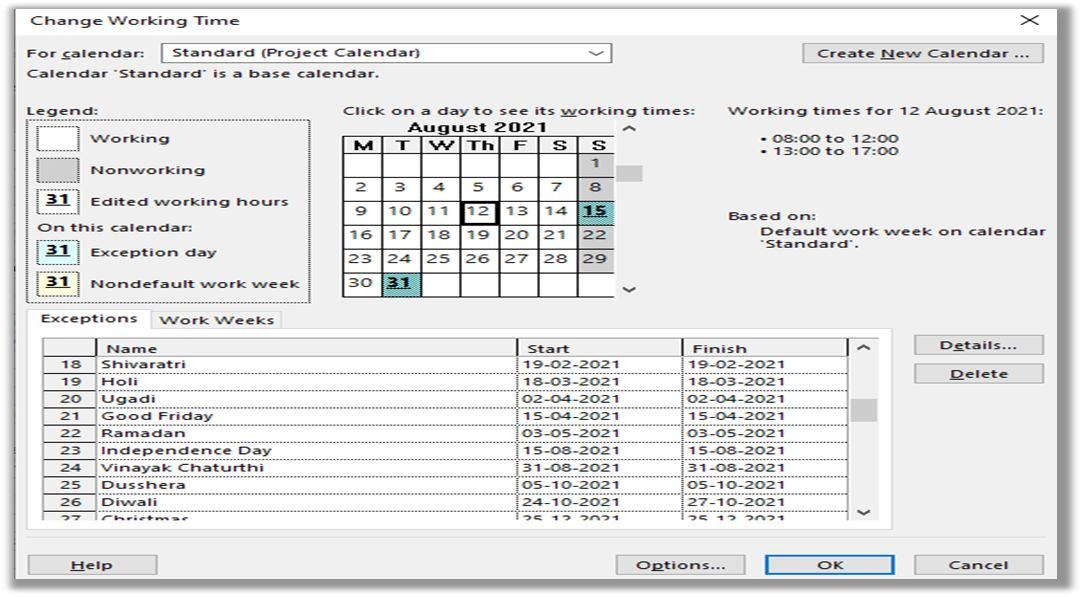
The project schedule for this study is known as Chaitanya Sharan, and it runs from 8:00 AM to 17:00 PM with an hour for lunch between 12:00 PM and 1:00 PM. The calendar has 48 hours of labour each week, or 8 hours of work per day, 6 days per week, and 30 working days per day. Figure 1 shows the Standard Calendar considered for this Villa Project.
Figure 1: Project Calendar
A WBS shows the hierarchy of a project's component parts. Using the work breakdown structure, a project called home structures is created. This creates various other activities in sequence inside of it. Project breakdown structures such as excavation and earthwork, foundation, superstructure, reinforcement, concreting, brick work including doors and windows frame, lintel work, interior plaster, waterproofing work, external plaster, finishing work, painting and service work are then produced inside this home structures. Figure 2 shows the WBS for the entire project.
Figure 2: WorkBreakdown Structure

A Gantt chart is used to create the project schedule for identifying the order of construction. These activities were given resources (manpower). Resource levelling has been done after considering the actual resources that are accessible on the construction site.
1) Resource Allocation: The accuracy of a project's timetable can be improved by adding resources. The Microsoft Project software determines whether resources are over allocated or not when they are assigned, and if they are, it will indicate this in the task sheet and resource sheet.
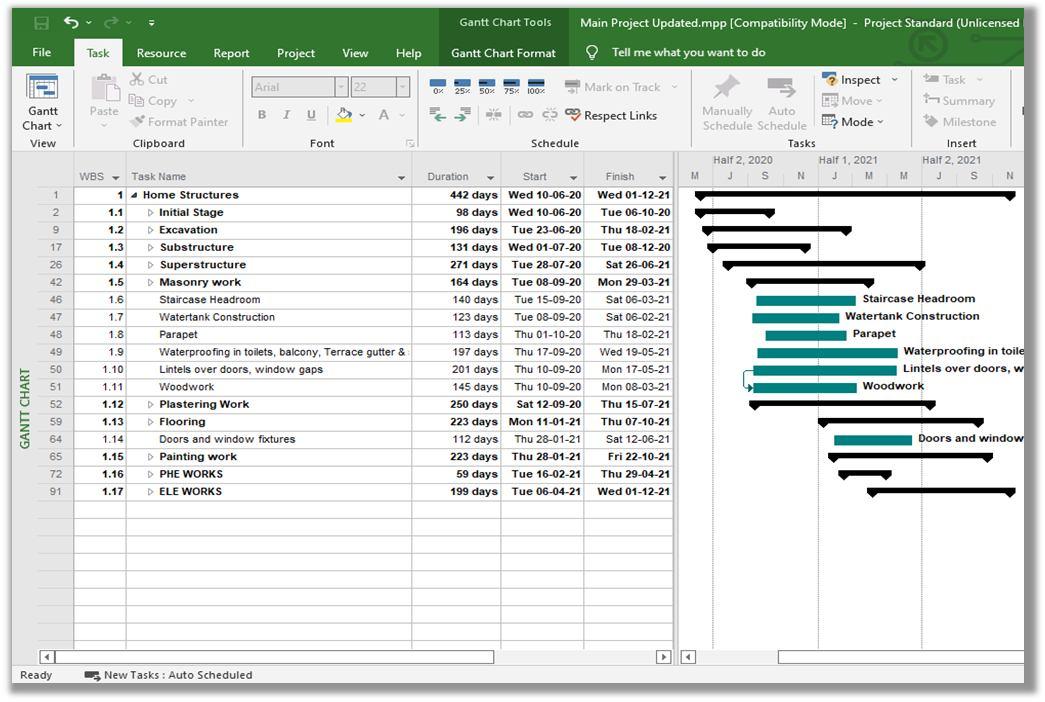
ISSN:
9653;
at www.ijraset.com

Base
is only available for resources of the work type. The estimated cost for all the activities and for the entire project is then determined. This job is completed utilising Analysis of Rate CPWD. Figure 3 and Figure 4 shows the resource allocation for Ground floor flooring. Similiarly, for all the other activities
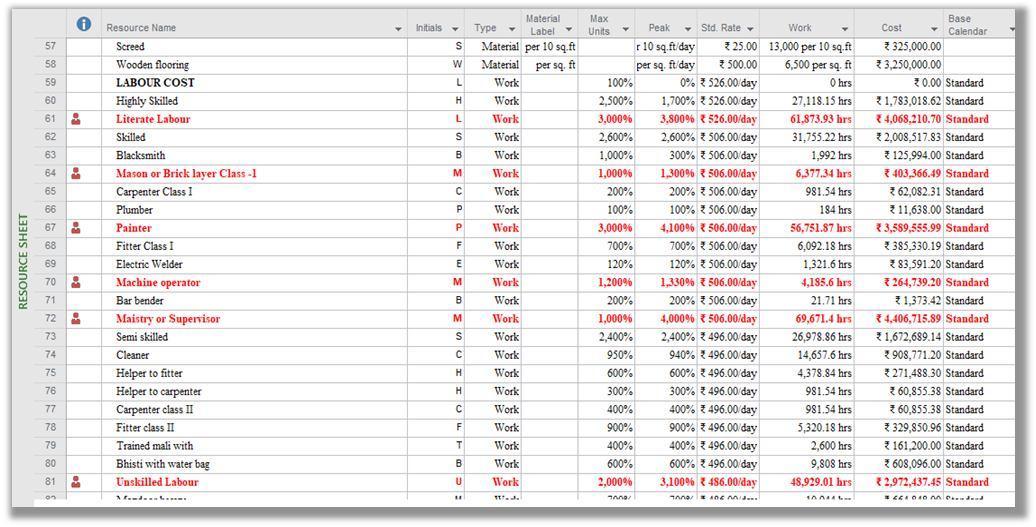
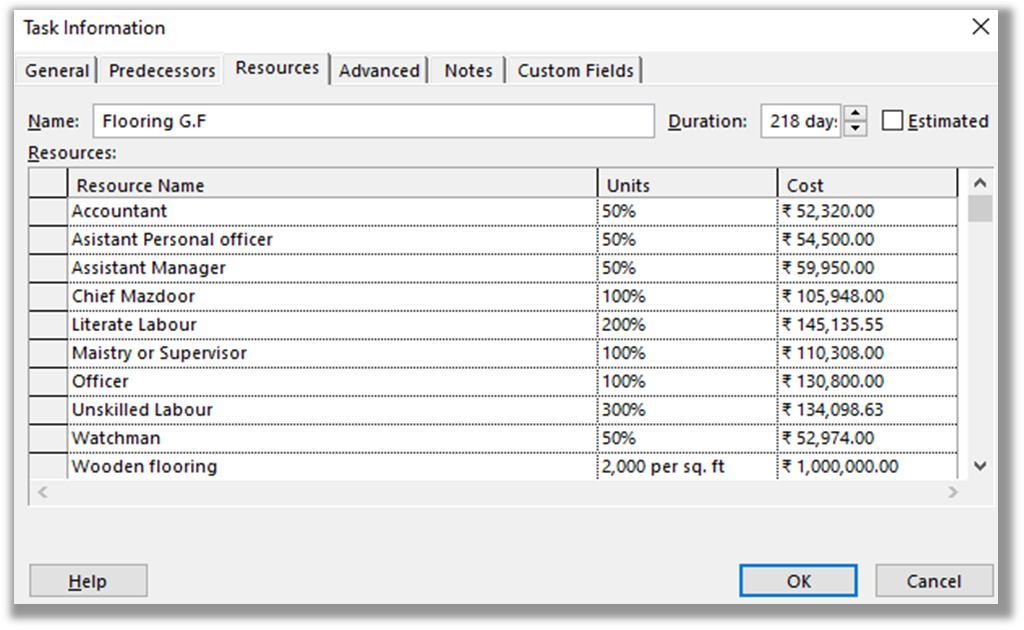
2)
resources are allocated.
more time than allowed by its work schedule
tasks, we notice that
Figure 3.25 and Figure 3.26 shows that the

of

Project.
3)
are shown in this histogram.
Assistant Personal Officer, Painter, Tractor Trolley,
Unskilled
Mistry/Supervisor, Mason, Lietrate


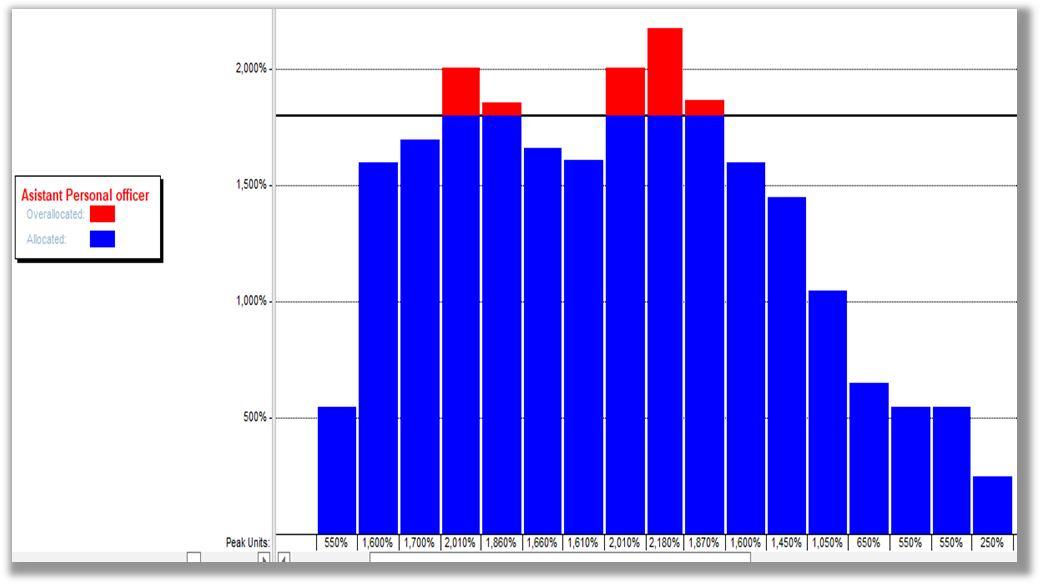

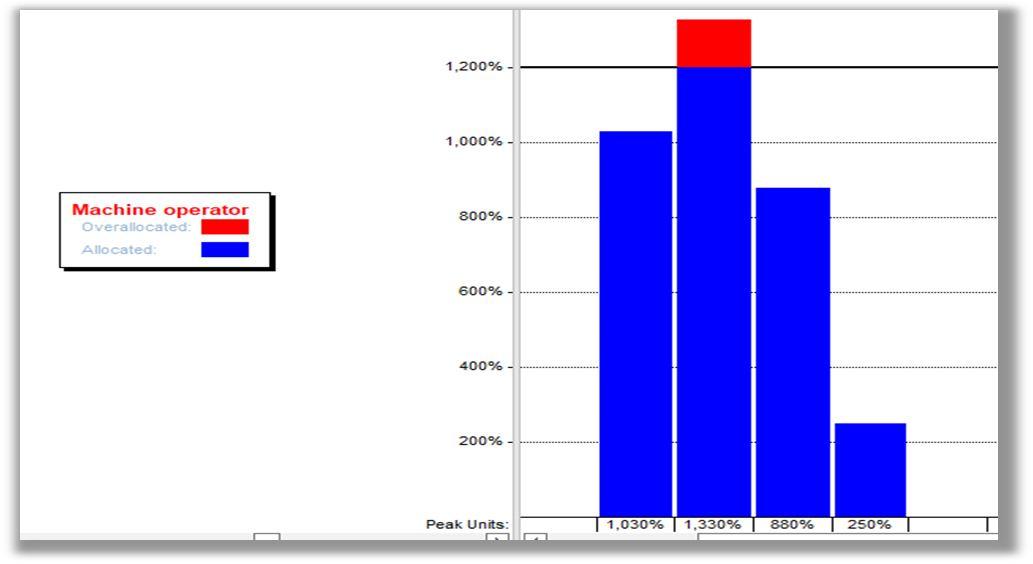
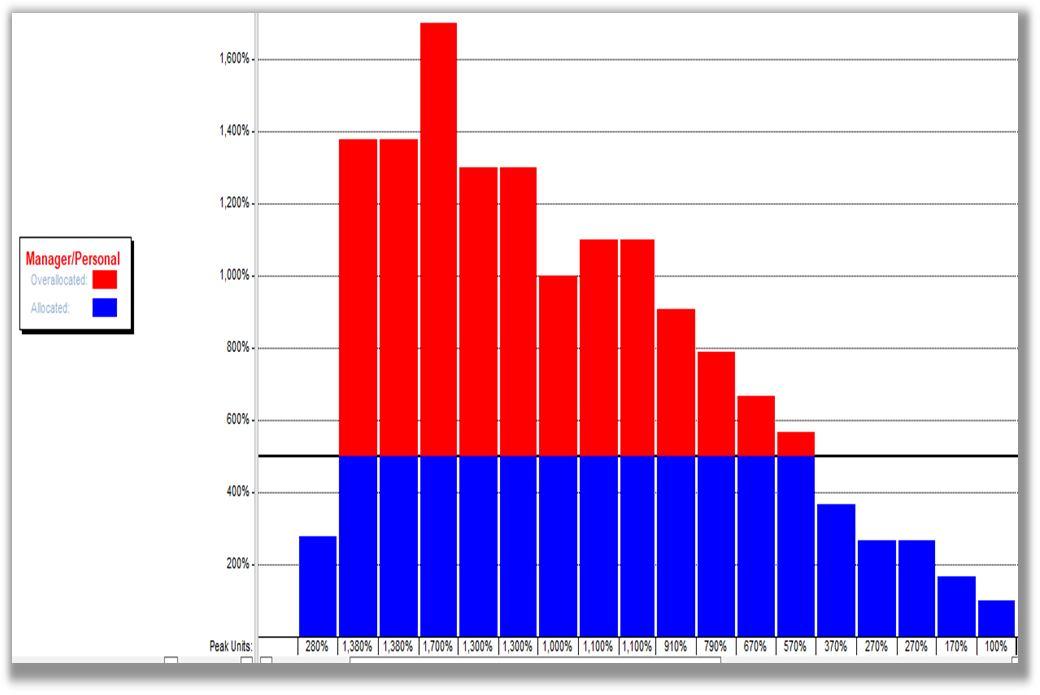



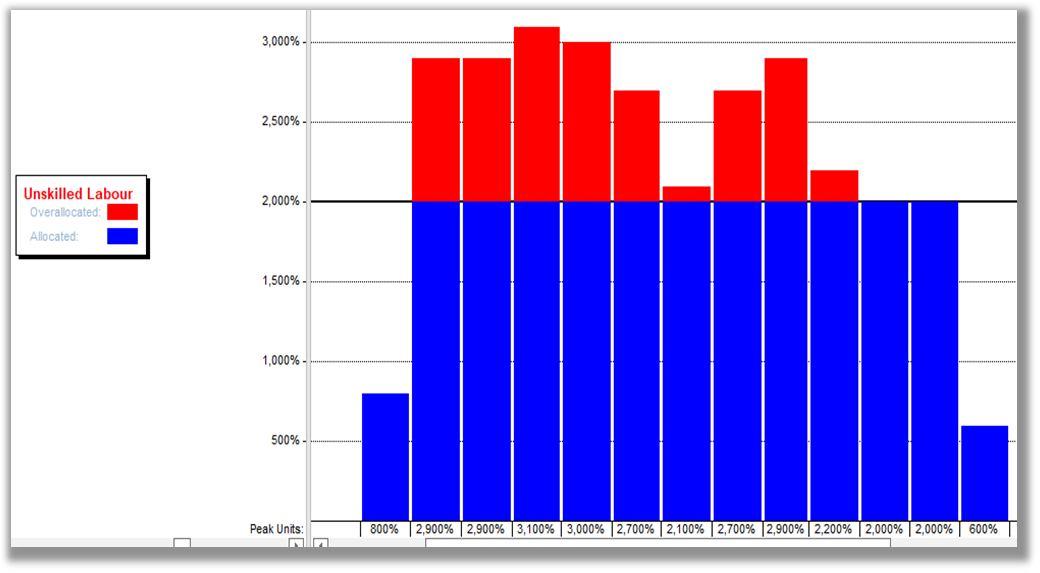
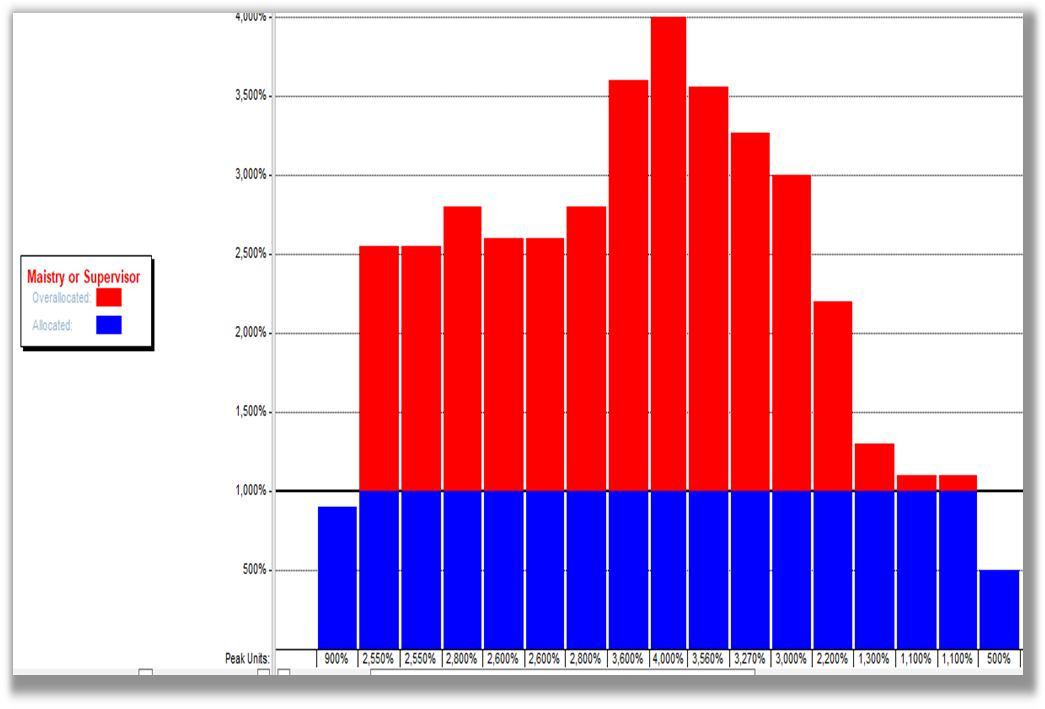
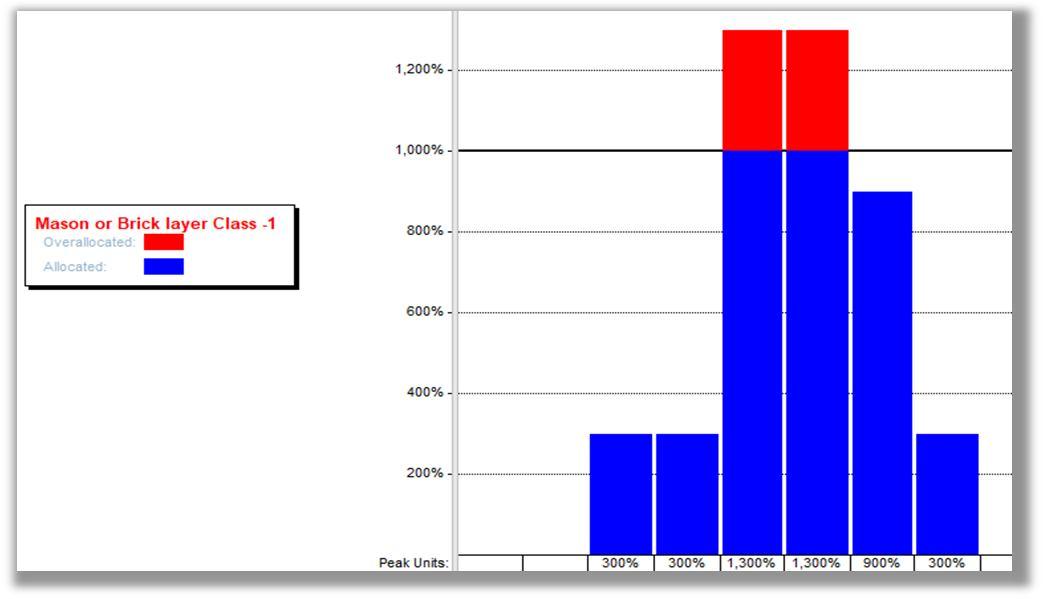
shows
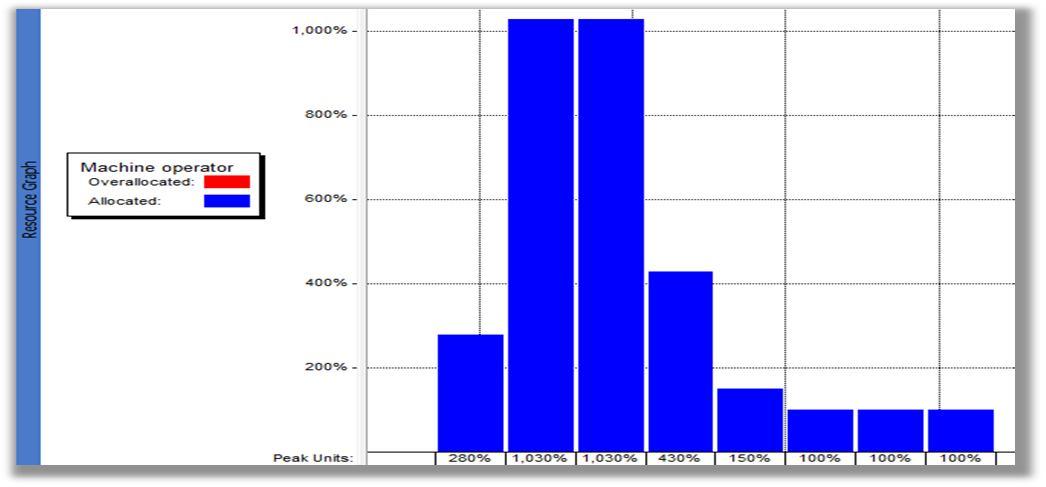
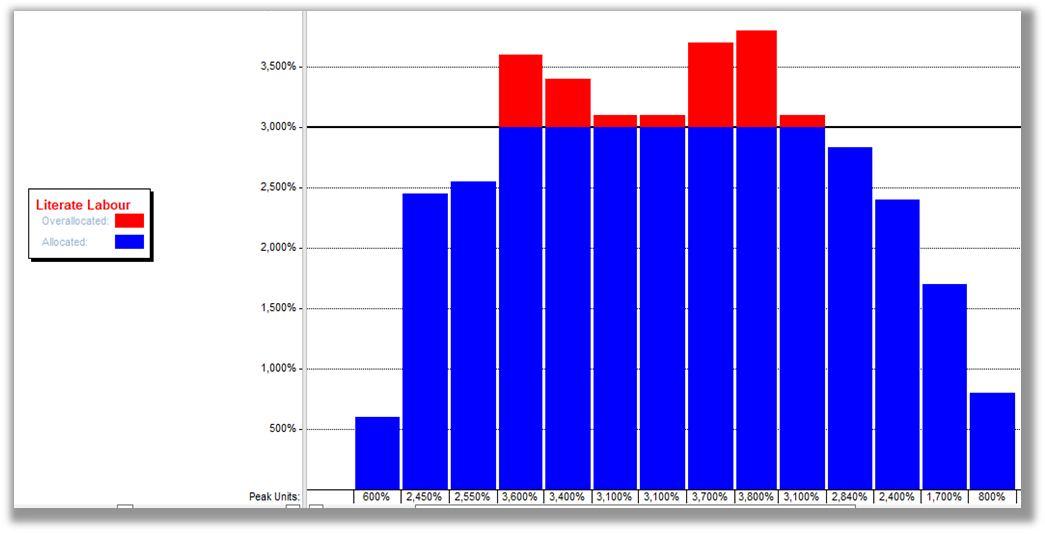
the
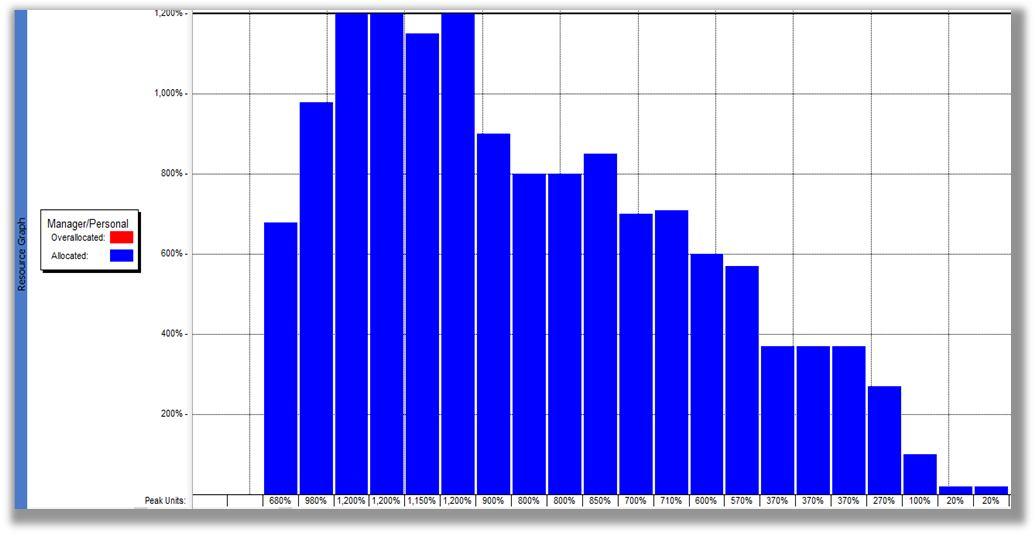





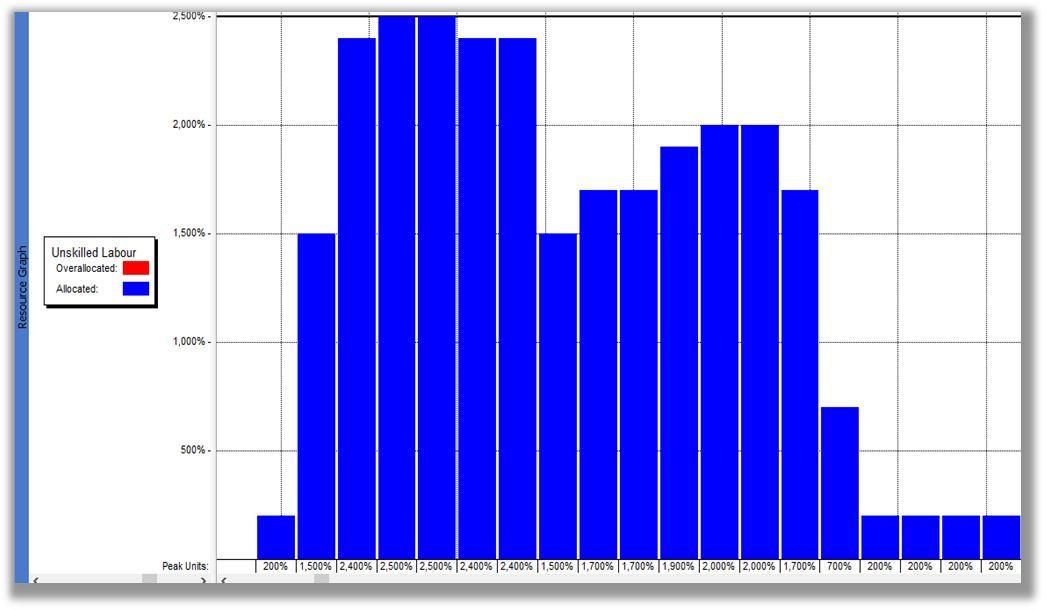
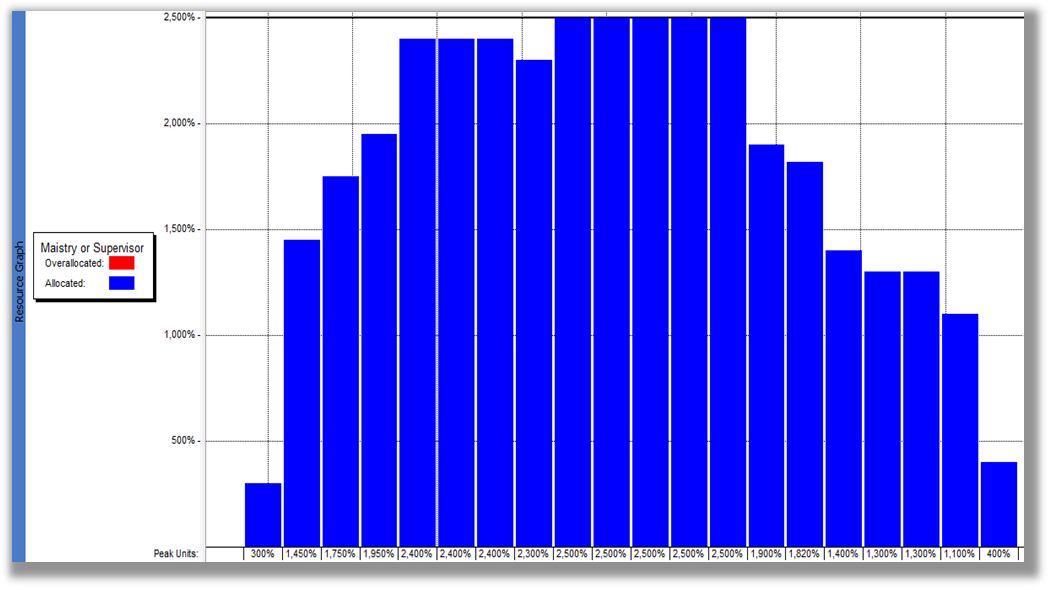

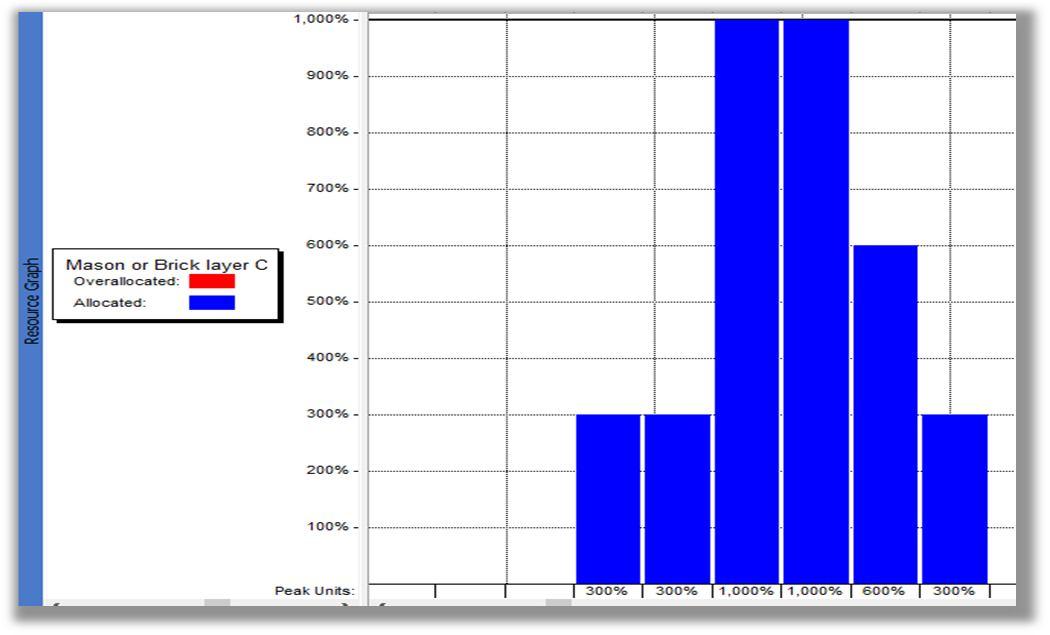




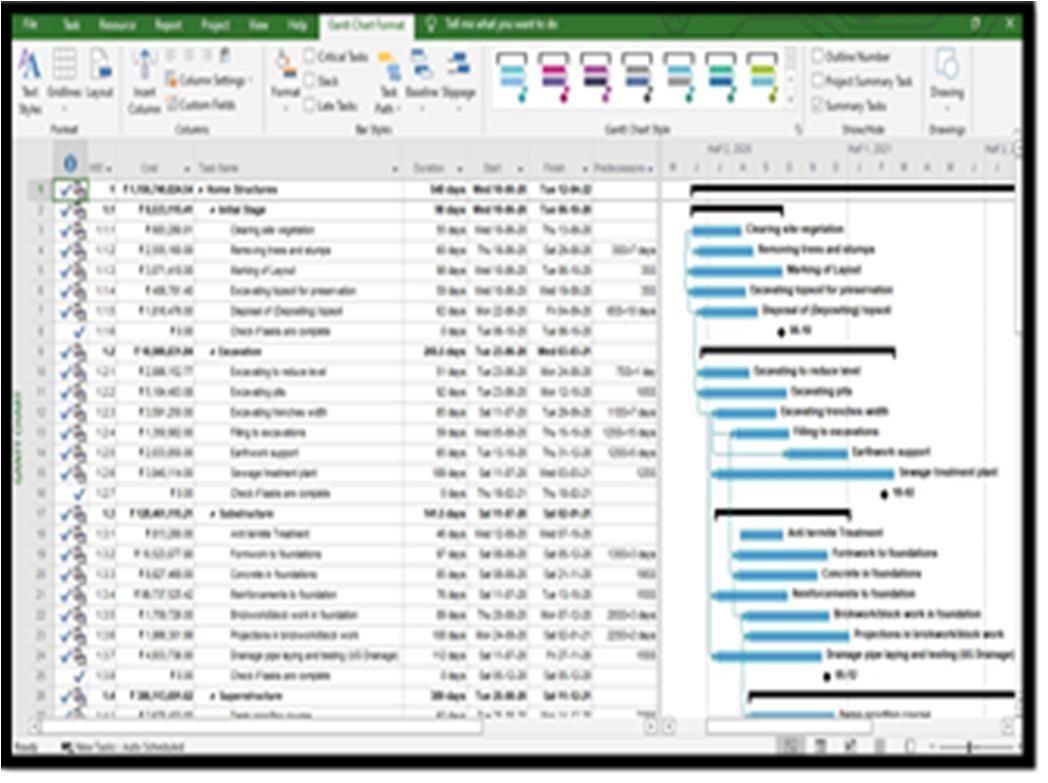
(IJRASET
ISSN: 2321 9653; IC Value: 45.98; SJ Impact Factor: 7.538

Volume 10 Issue IX Sep 2022 Available at www.ijraset.com
It is a graphic representation of the many activities and how they relate to one another. The network diagram here displays the project's tasks in the sequential sequence in which they will be completed. The network diagram enables the construction and connection of the tasks and their intended execution visibly. A network diagram may include tasks, deliverables, milestones, or subprojects. Also displayed is the critical path. CPM network will be given by MS Project. Activities that are highlighted in pink are those that are critical; other activities are not.
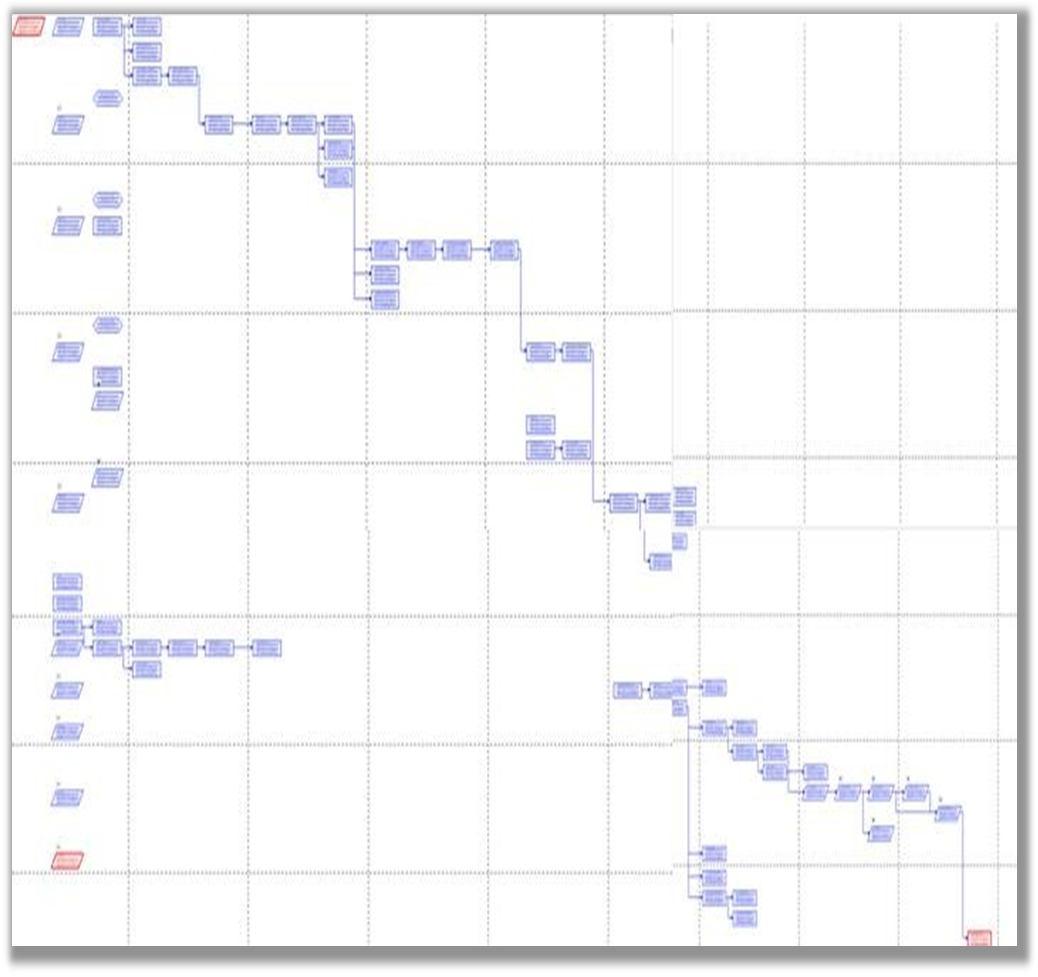
Figure
Network Diagram

By creating the WBS (Work Break down Structure) and allocating the resources the total duration of the project is calculated by planning and scheduling the project. In this study, the planned date of starting of project was 10/06/2022 and scheduled completion date is 12/04/2022.
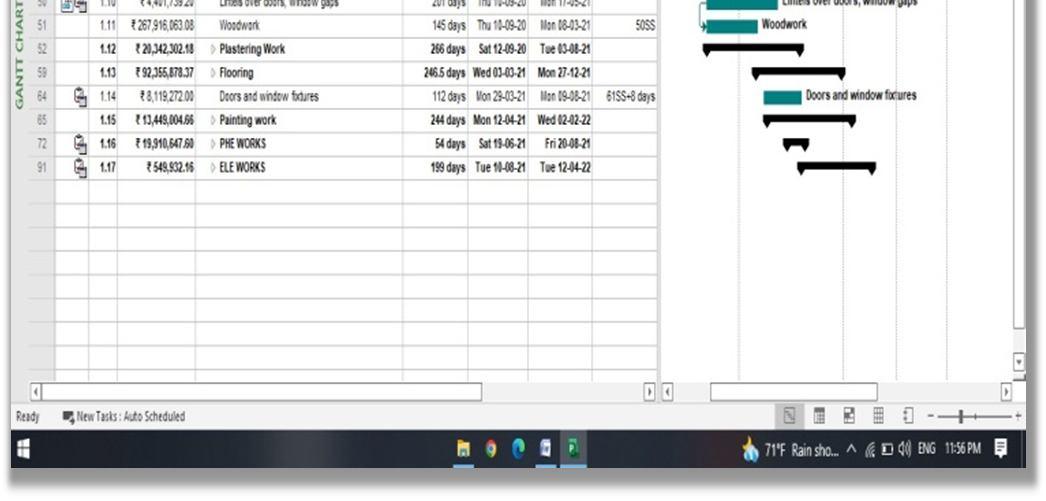
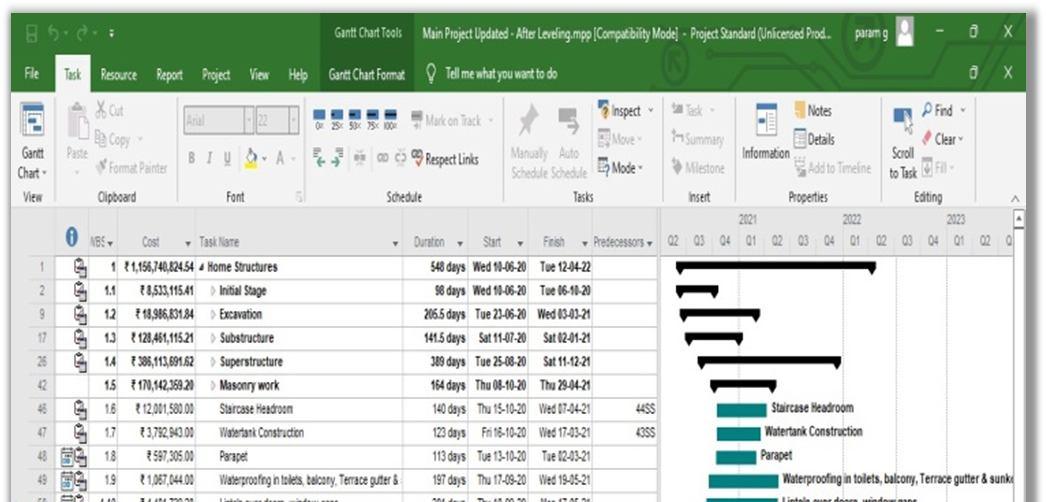
Figure
of the Project


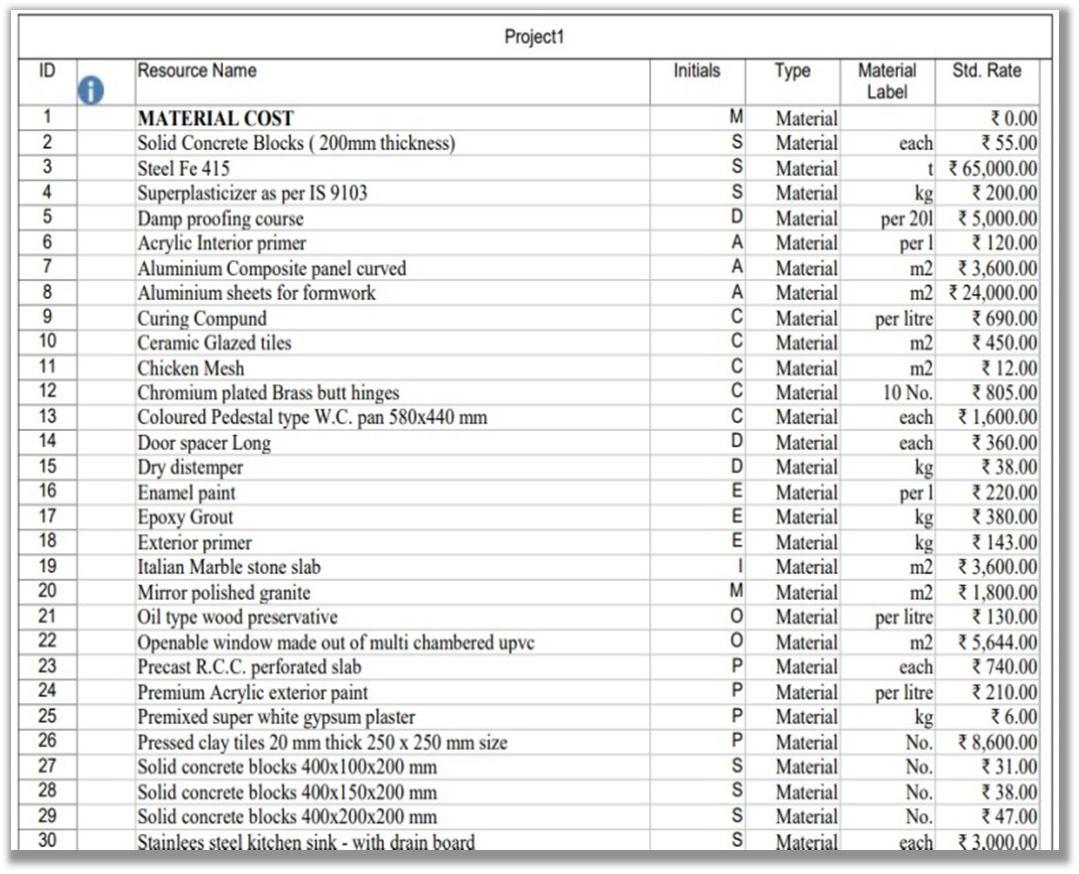
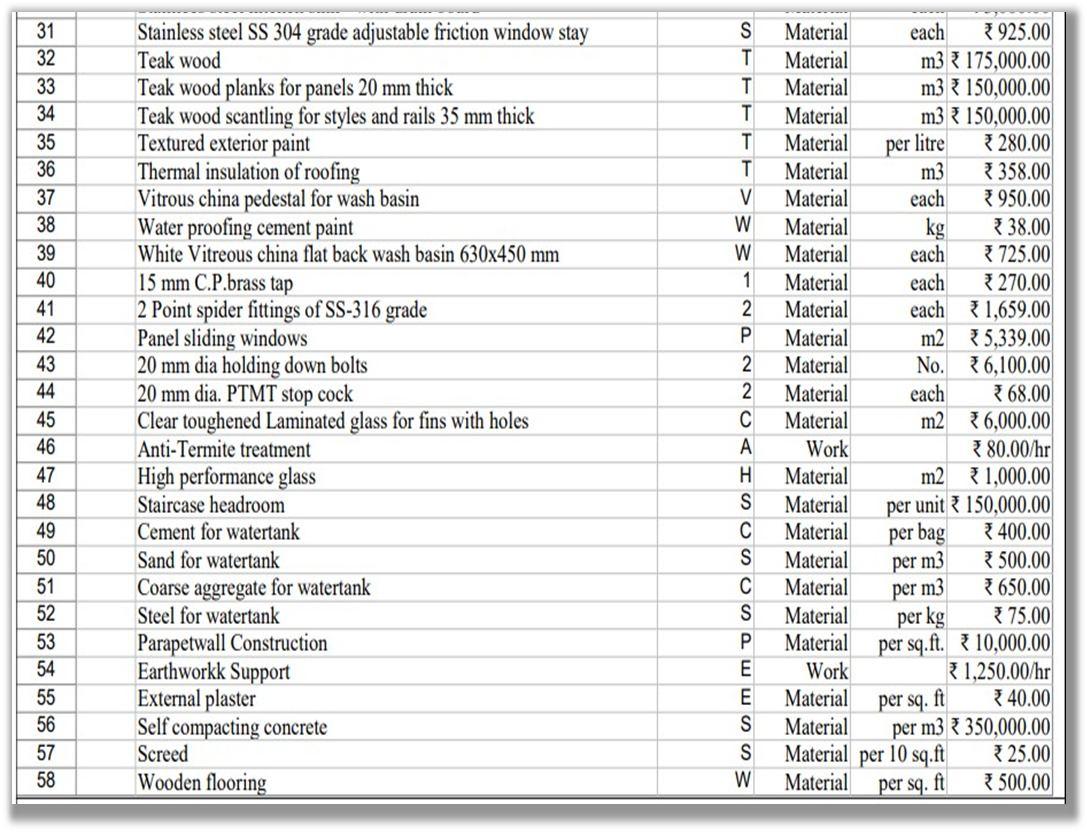
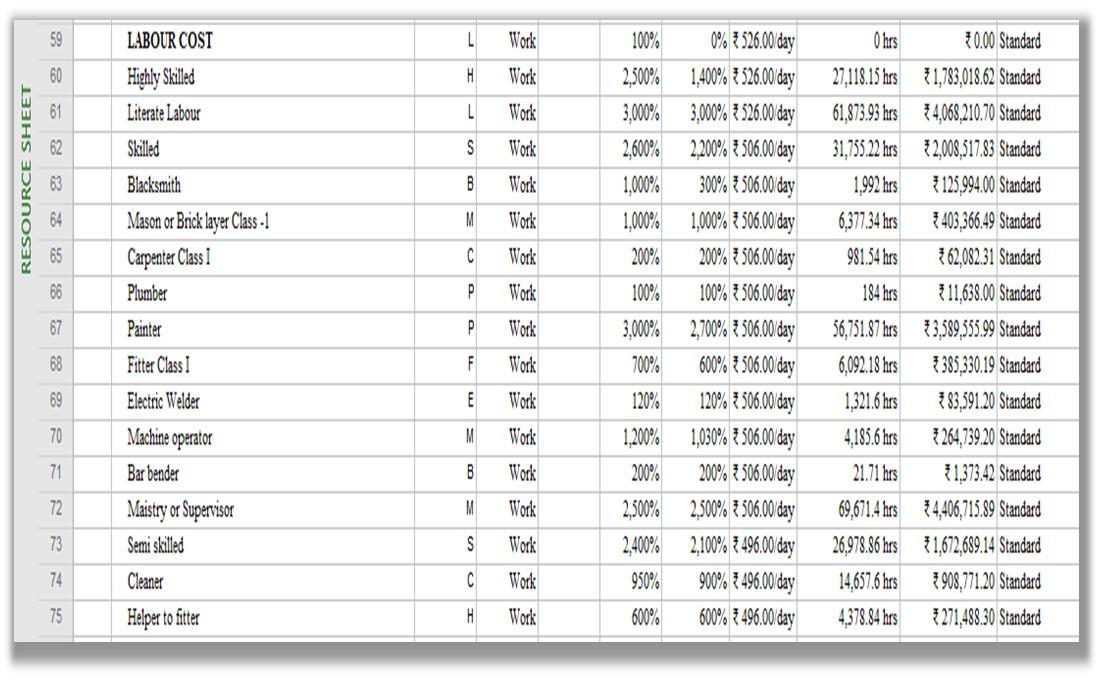


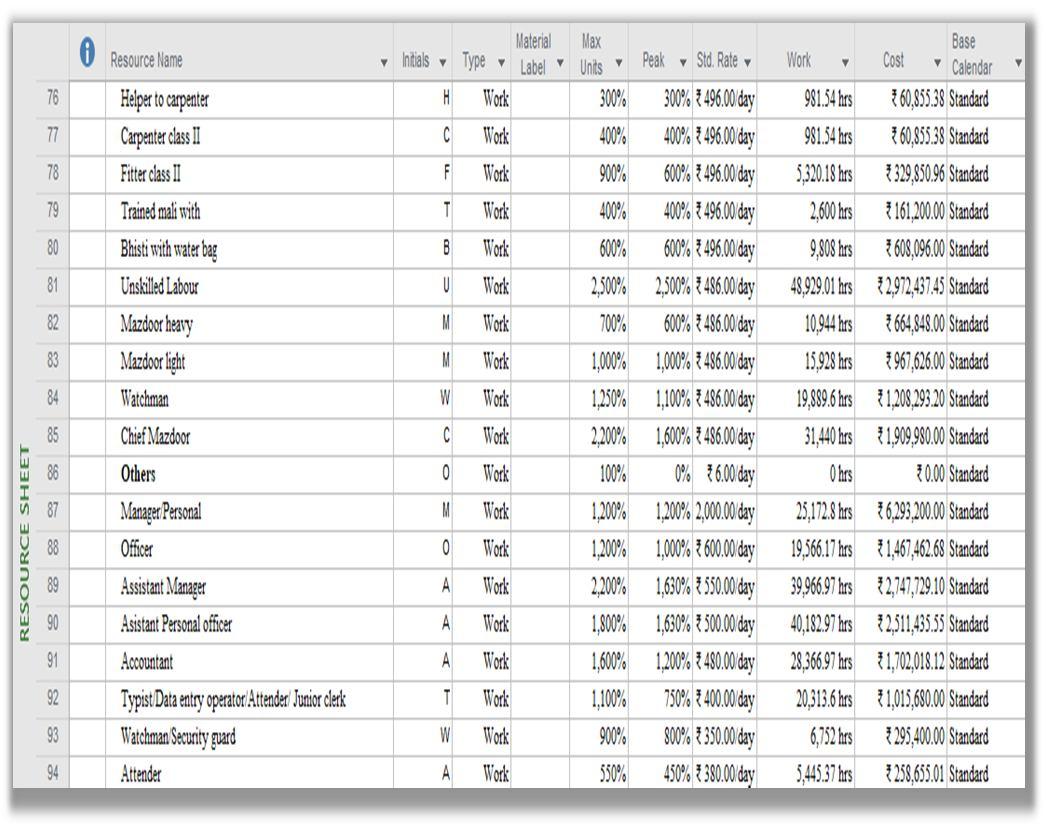
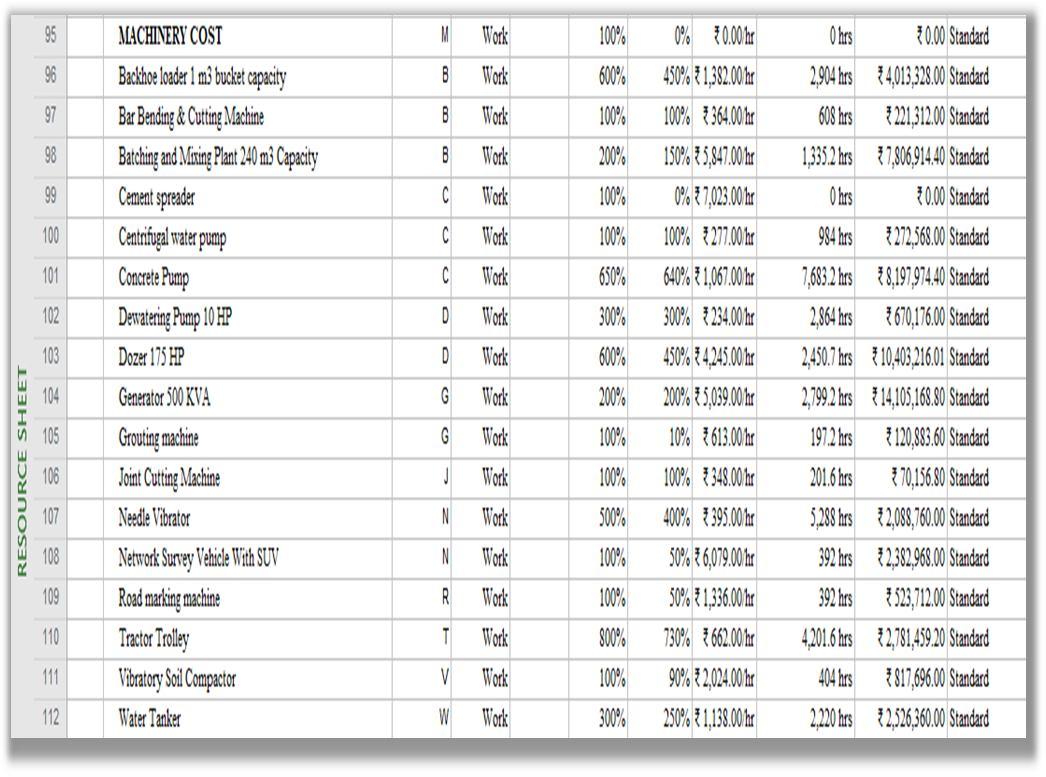
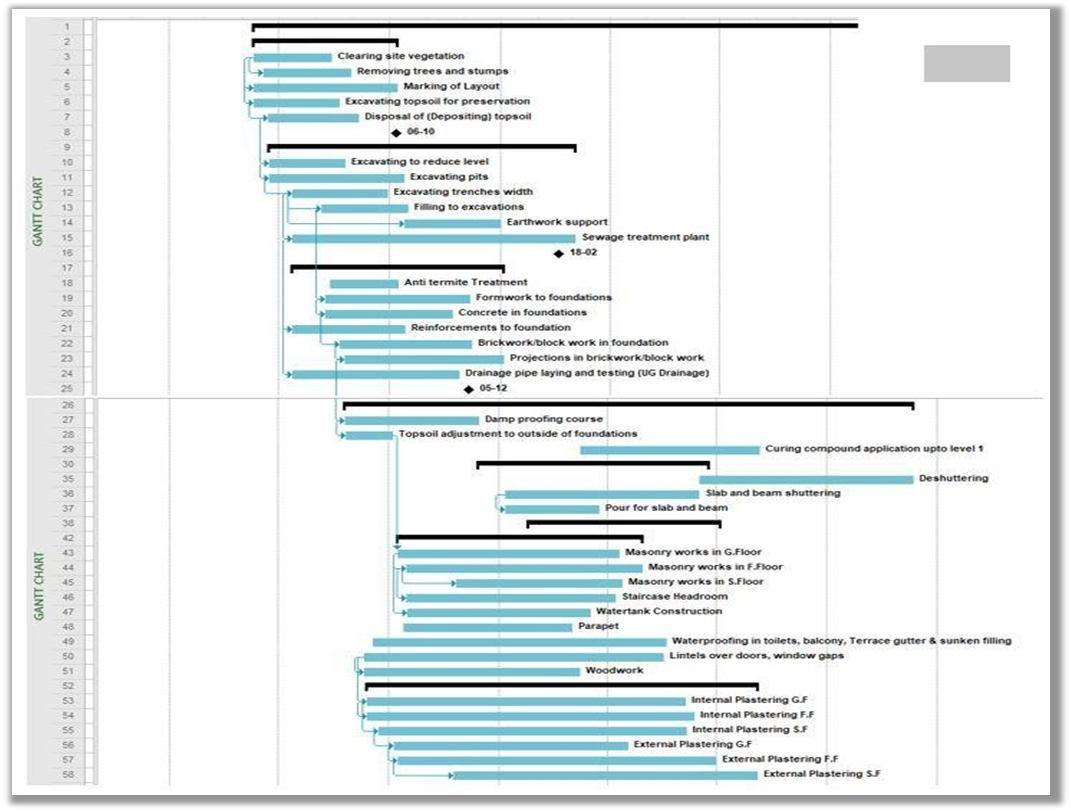


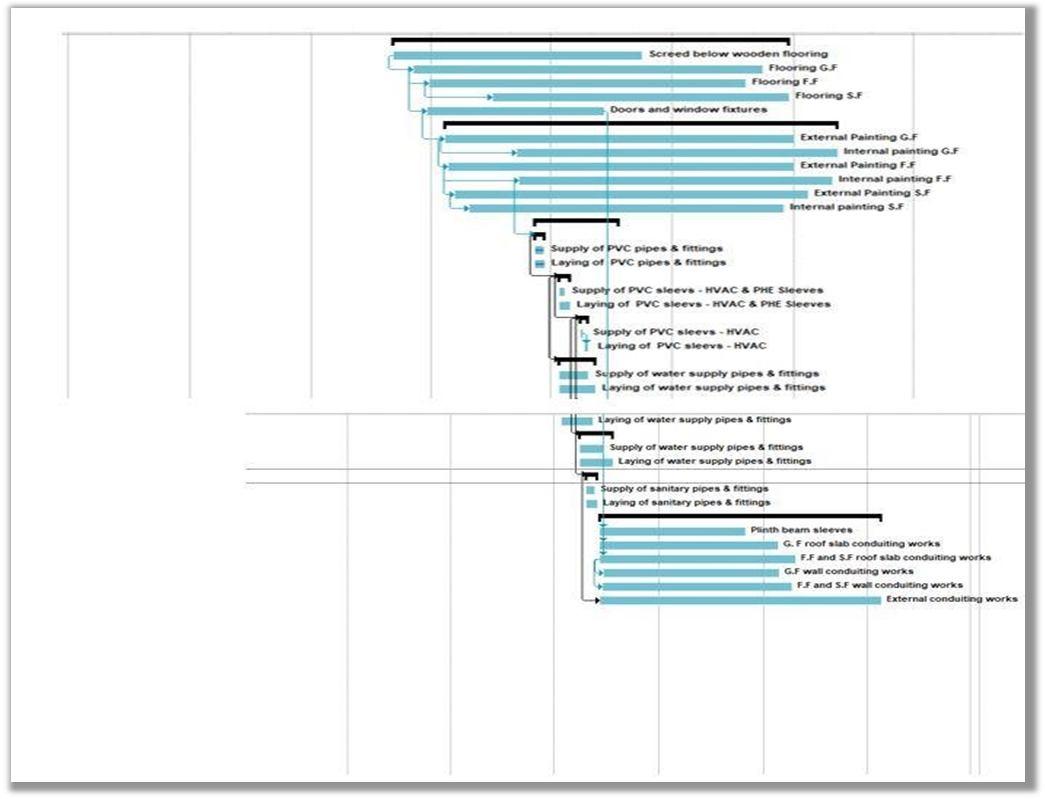
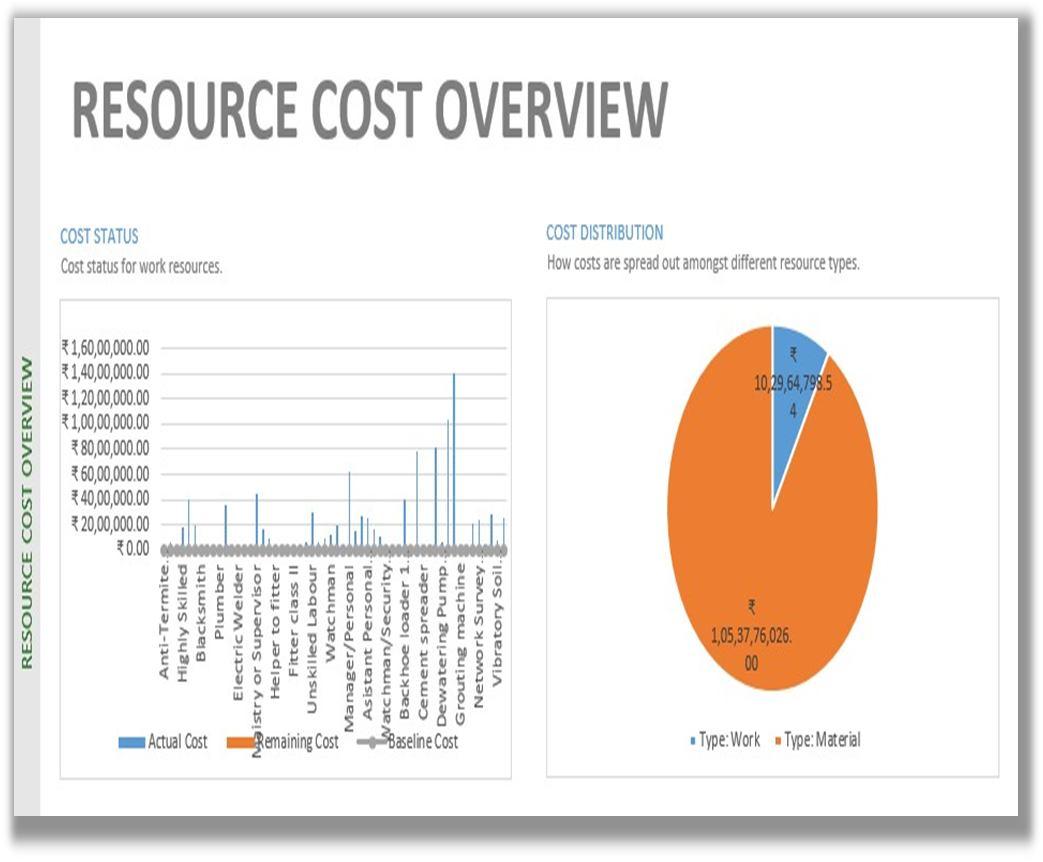

International
ISSN: 2321 9653; IC Value: 45.98; SJ Impact Factor: 7.538

10 Issue IX Sep 2022 Available at www.ijraset.com
The cost of each action is calculated by Microsoft Project, which also provides the project's overall cost. The cost is calculated by Microsoft Project in the same way as we manually calculate it. The client can learn his project's final budget from this. It supports the budget of the client, the owner, or the contractor. The price of any item can be helpful as well.
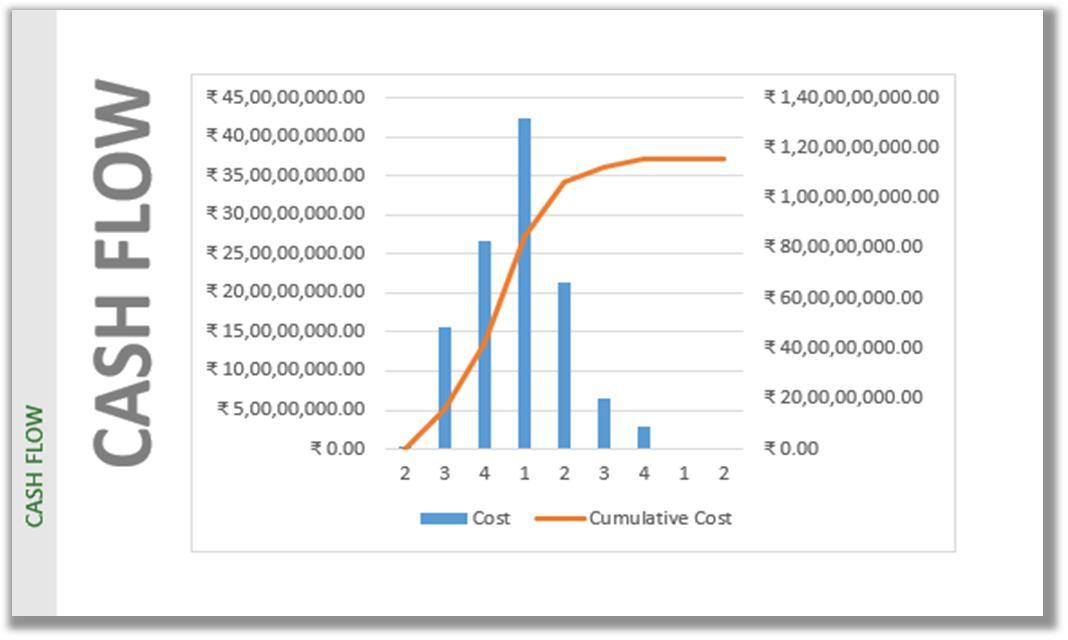
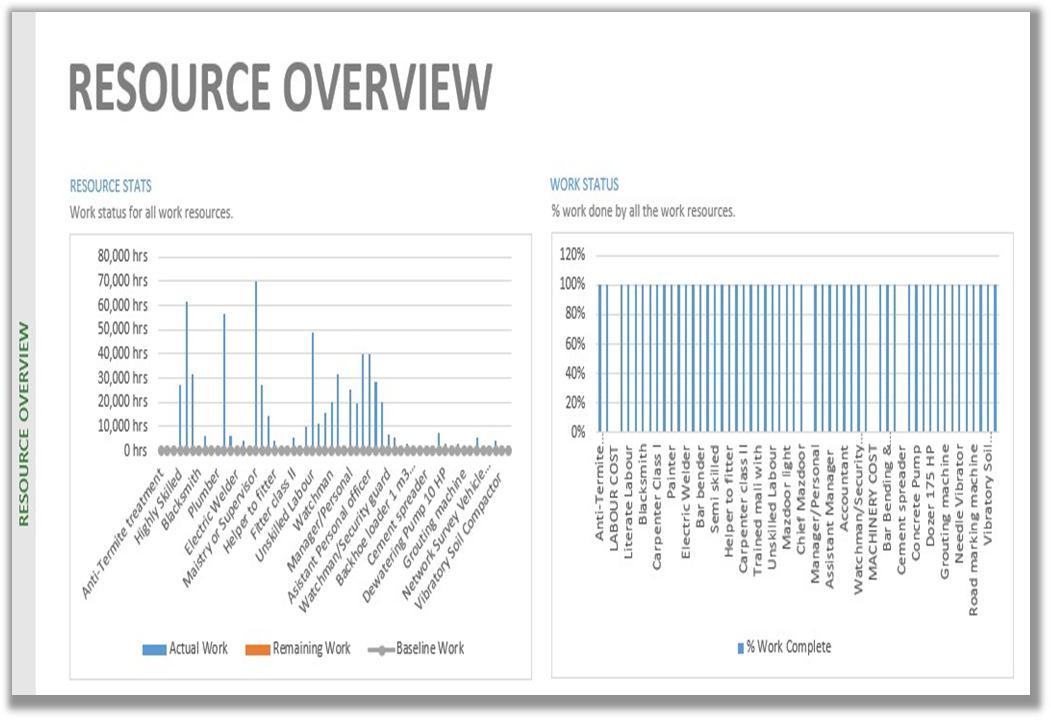
Figure
Figure
Cash
Graph

generated in
Figure
Actual required duration to complete the project is 442 days. After resource levelling duration of project is increased to 548 days. Thus the project duration increased by 19%. Increase in project duration causes increase in the project cost. Project cost is increased to Rs.136, 850,237. Thus, project cost increases by 0.94%
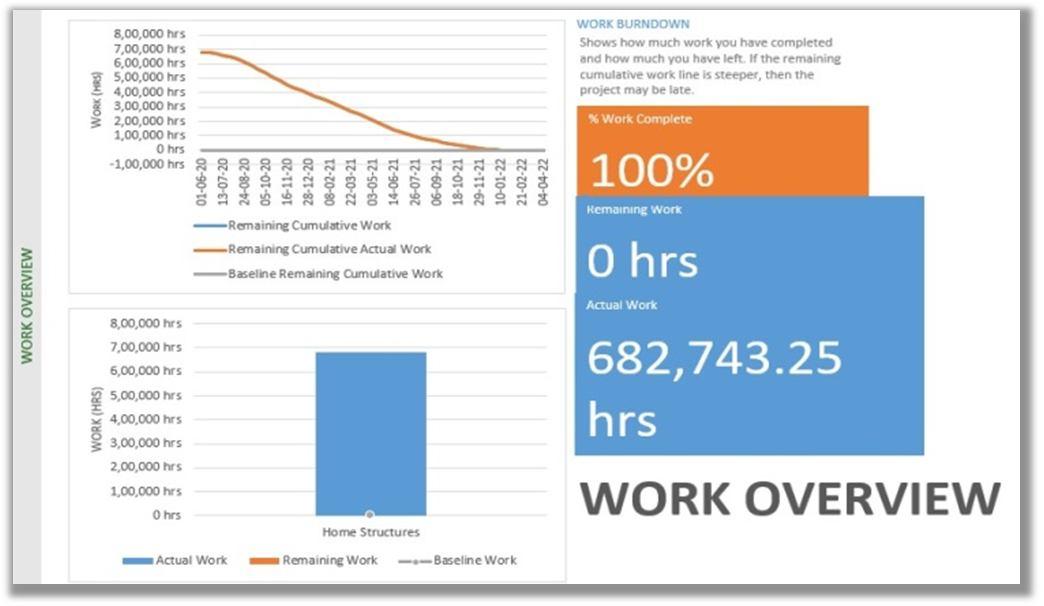
International Journal for Research in Applied Science & Engineering Technology (IJRASET)

ISSN: 2321 9653; IC Value: 45.98; SJ Impact Factor: 7.538

Volume 10 Issue IX Sep 2022 Available at www.ijraset.com
1) Construction management application, Microsoft Project 2013 is utilised in this project for planning, scheduling, resource allocation, levelling, and tracking.
2) Resources such as manpower, material and machinery are allocated for each and every activity according to the requirement. The overallocated resources are Assisstant Personal Officer, Painter, Tractor Trolley, Supervisor, Machine Operator, Manager Personal, Unskilled labour, Maistry/Supervisor, Mason, Lietrate Labour
3) Resource levelling is done for resource constrained analysis. Only labour and machinery are considered resources for this project. In exchange for lessening resource restrictions, duration is extended.
4) Actual required duration to complete the project is 442 days. After resource levelling duration of project is increased to 548 days. Thus the project duration increased by 19.3%.
5) Increase in project duration causes increase in the project cost. Project cost is increased to Rs.136, 850,237. Thus, the project cost increases by 0.001% without slack. Since there are 26 Villas, the cost of each villa would be around 4.5Cr.
6) Different graphical representations like charts, views are used to analyze the project as they are easy to understand.
7) This system of analysis can be used by a company with numerous projects that are comparable to update the best options accor ding to the requirements.
8) This comprehensive study is conducted to develop a project timetable and identify the best way to employ all available resources. Additionally, it will support the funding needed for it as well as the procurement of materials.
[1] Rhuta Joshi, Prof. V. Z. Patil(2013), Resource Scheduling of Construction Project: Case Study, International Journal of Science and Research (IJSR) ISSN (Online): 2319 7064, Volume 4 Issue 5, May 2015
[2] Lokendra Magendra, Sudhanshu Pathak, (2016) Resource Leveling for a Residential Building: A Case Study, International Journal of Research in Civil Engineering, Architecture & Design Volume 4, Issue 2, April June, 2016, www.iaster.com ISSN (O) 2347 2855 (P) 2347 828.
[3] Rajani Vasant Kulgude, Prof. Amey A.Kelkar, (2018), Planning, Scheduling And Resource Management For A Multistoried Building Using Microsoft Project, International Research Journal of Engineering and Technology (IRJET) e ISSN: 2395 0056 Volume: 05 Issue: 06 | June 2018 www.irjet.net p ISSN: 2395 0072
[4] Lavanya S, G Narayana 2019, Cost Analysis of Construction Building By Earned Value Method using MS Project Software, International Journal of Recent Technology and Engineering (IJRTE) ISSN: 2277 3878, Volume 8, Issue 1C, May 2019
[5] Aldrin(2021) Planning and scheduling for multi story building using M.S project, International Journal of Advance Research, Ideas and Innovations in Technology, ISSN: 2454 132X Impact Factor: 6.078 (Volume 7, Issue 2 V7I2 1371)
[6] T.Subramani, T.M.Karthick(2018), Study on Time and Resource Management in Construction Projects Using MS Project, International Journal of Engineering & Technology, 7 (3.10) (2018) 23 26
[7] Pooja Tripathi, Vinay Kumar Singh , Pravin Singh Tomar , J. P. Gupta, (2018), Planning And Scheduling Of Multistorey Rcc Building Using Microsoft Project, International Journal of Engineering Science Invention Research & Development; Vol. IV, Issue XI, MAY 2018 www.ijesird.com, E ISSN: 2349 6185
[8] Sachin Pashupatihal, Prof. Vidyasagar V. Moogi(2019), Planning and Scheduling for a Multi Storied Building using MS Project , International Research Journal of Engineering and Technology (IRJET) e ISSN: 2395 0056 Volume: 06 Issue: 07 | July 2019 www.irjet.net p ISSN: 2395 0072
[9] Mr. Pradeep, Dr. Rajendra S, (2015), Planning, Scheduling and Resource Optimization for A Villa by using Ms Project 2010, IJSRD International Journal for Scientific Research & Development| Vol. 3, Issue 10, 2015 |ISSN (online): 2321 0613
[10] Roopa M (Ph.D.), Dr. T V Mallesh, Rahul Guna Vyjayanth, Geetanjali Lukram(2019), Study On Project Planning, Scheduling And Execution Of Residential Apartment Using Msp, International Journal of Scientific Development and Research (IJSDR) www.ijsdr.org, Volume 4, Issue 5
[11] Ms. Darshana P. Khandarea, Dr. M.R. Nagare, (2021) Prepare Project Schedule using Microsoft Project, International Journal of Research Publication and Reviews Journal homepage: www.ijrpr.com ISSN 2582 7421, Vol (2) Issue (8) (2021) 233 245
[12] Shruti Singh, Shweta Istape, Amruta Surve, Sahil Pandey, Avinash Singh, Sangram More, (2018) Comparative Study Of Planning And Scheduling Of A Construction Project Using Microsoft Project, IJRET: International Journal of Research in Engineering and Technology eISSN: 2319 1163 | pISSN: 2321 7308, Volume: 07 Issue: 06.
[13] Akshayakumar V. Hanagodimath, Dr. H. M. Rajashekarswamy, Harshad R. Parate, Project Performance In Real Time Construction Industry A Case Study, International Journal of Civil Engineering and Technology (IJCIET)
7, Issue 5
[14] Abhishek Sharma and K.K. Pathak (2015), Manpower Planning, Scheduling and Tracking of a Construction Project
[15]
[16]
Microsoft Project Software, National Institute of Technical Teachers’ Training and Research, Bhopal (M.P.), India
Schedule
Karnataka
